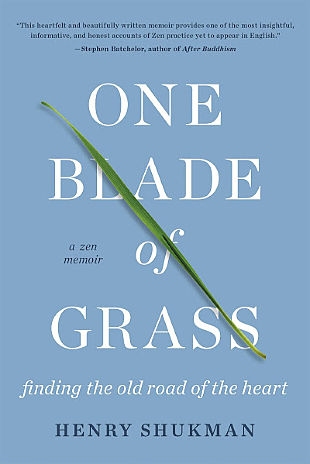"Koans were different now. I felt I knew the world the masters were living in, and it wasn't what it had previously seemed. During my earlier training I had felt as if every koan had shot through me from another realm, using me like a hand puppet to 'present' itself. But now it felt as if the screen between me and that realm, weakened by so many koans, had given way. I was standing in the same realm as the koans. It was clear that that realm and this realm of everyday life had never been separate from the start.
"John had once given a talk about a Zen dialogue where a monk asks Joshu, 'What is Zen?'
"Joshu: 'It's not Zen.'
"Students: 'Why is it not Zen?'
"Joshu: 'It's alive! It's alive!'
"John had asked us all rhetorically, 'What is alive?' The table, road, car, wall, no less than the bird or the cat, a thought about lunch tomorrow, a spoon on the table, the humming fridge. In Joshu's world you might reasonably ask whether anything was not alive.
"Zen is the opposite of withdrawal from the world. It's a radical acceptance of life, the pain and suffering no less than the beauty of the dawn skies, of the sea in rain, the mountain dark under morning clouds, and the shopping list. Unless a path leads us back into the world — reincarnates us, as it were — it's not a complete path. For Zen, this life, this world, is the very absolute. Making a cup of tea, fetching milk from the fridge, standing outside on the front step, watching the remains of a storm drift across the dawn sky, and hearing the drip-drip of rainwater into a puddle from a roof are miracles. The miraculous, in the end, is the fact of anything existing at all.
"That's why the koans all speak the language of ordinary things. Dogs, bridges, mountains, rivers: the concrete things of this world are their very fabric.
"A monk once asked Joshu, 'What is my teacher?'
"Joshu said, 'Clouds rising out of the mountains, streams entering the valley without a sound.'
"The monk said, 'I wasn't asking about them.'
"Joshu said, 'Though they are your teachers, you don't recognize them.' "
